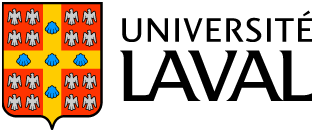
Ruptures Revoked : Why rebellions, politics, and interventions reinforce old patterns of governance in the Central African Republic
17 octobre 2017
Date et lieu
Mardi 17 octobre 2017 de 11h30 à 13h au Pavillon Charles-De Koninck, salle 5242
Conférencière
Dr. Lotje de Vries is an assistant professor at the Sociology of Development and Change Group of Wageningen University. Her research focuses on everyday dynamics of (in)security, transnational security governance in peripheries and borderlands, and state-society relations in (post-)conflict settings (South Sudan and the Central African Republic). She has a background in development sociology and a Ph.D. degree from Wageningen University (2012).
Résumé
The Central African Republic experienced unprecedented violence between 2012 and 2014 and since the beginning of this year, violence has spread anew in different parts of the provinces. This talk will elaborate on and analyse three recent developments that suggest a break with the country’s past. First, the Séléka rebellion that began in 2012 was more ambitious than previous ones. Second, the establishment of a robust UN mission in 2014 signified unprecedented international commitment. Finally, in 2016, the country’s citizens elected a civilian president who has excluded armed actors from government positions. Drawing on data collected over a total of 13 weeks of fieldwork in the capital and several provincial towns between early 2015 and August 2017, I will argue, however, that three historic trends quickly reemerged. The deep-rooted histories of outsourced politics, a plurality of violence, and peripheral neglect have in each case transformed what initially seemed as a disruption from past in ways that have perpetuated the violent past rather than breaking with it. In conclusion, by failing to break from the CAR’s pre-crisis political economy, the UN mission and the democratic government risk reinforcing and entrenching the violence and insecurities that mark politics and everyday life in the country.

